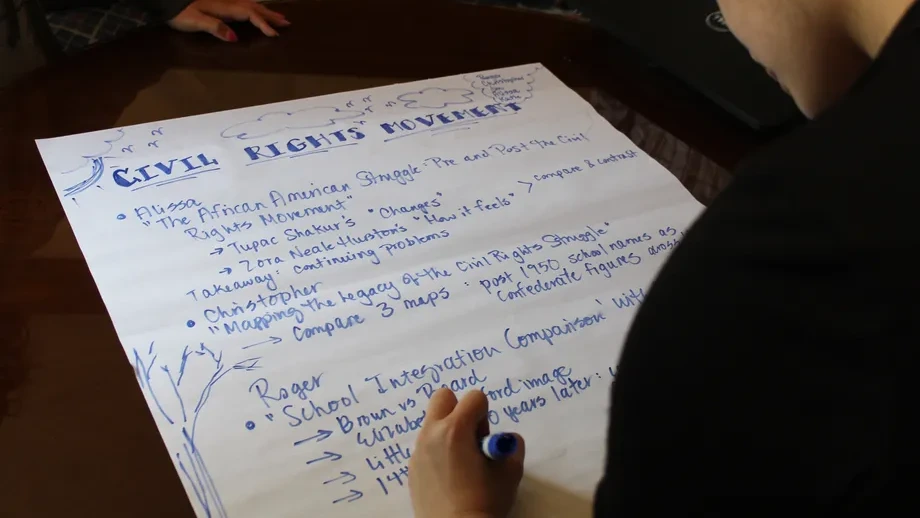Memphis’ White Station High selected to pilot AP African American studies class
By Samantha West, Chalkbeat Tennessee
This story was originally published by Chalkbeat on February 8, 2022. Sign up for their newsletters at ckbe.at/newsletters
Memphis schools have offered elective African American history and literature classes for nearly three decades. But next school year, White Station High School will offer a more rigorous, comprehensive, and collaborative version of the course shaped by professors from colleges and universities throughout the country.

White Station is one of about 60 schools across the U.S. to be selected to pilot a new Advanced Placement African American studies course over the next two academic years. The Memphis-Shelby County school board late last month approved the district’s participation in the pilot, which is expected to cost the district $600.
Calling the new AP African American studies course a unique opportunity, district officials said the pilot will expand on their longtime efforts to provide culturally relevant and diverse instruction to its more than 100,000 students, the majority of whom identify as Black. The course will only be available at White Station to start, but officials hope it eventually will expand to all the district’s high schools.
“Any time we can further enrich the historical study portion of our curriculum, it’s a great opportunity for our students,” said James Smith, manager of the district’s AP programming.
Paraphrasing George Santayana’s famous quote, “those who cannot remember the past are condemned to repeat it,” Smith added, “this is a great opportunity for us to learn at a deeper level — a wider level — about our current political circumstances and our past history and the relationship between the two.”
Following the lead of urban school systems across the country in the early 1990s, legacy Memphis City Schools launched its first multicultural curriculum in 1993. The program infused more instruction about African, Asian, and other non-European cultures into required high school social studies classes, and also added elective African American history and literature courses — as currently offered at White Station and the district’s other high schools.
Now, Smith said, offering a more expansive view of African history, expanding the AP course offerings, and giving more students the chance to earn college credit all are exciting.
The curriculum for the pilot course is not yet set in stone, Smith said, but it will center on the migration of people of African descent to the U.S., the Caribbean, and Central and South America. The class will start with the medieval kingdoms of Africa, and progress through enslavement, the abolition movement, eventual freedom, and Black people’s continued battles for civil rights and equality.
The new AP class is an important step toward teaching children a more accurate version of history, said Chris Tinson, an associate professor of history and the department chair of African American studies at Saint Louis University. Tinson is among about 20 college professors who have advised the College Board in crafting the course curriculum.
When he was growing up in the 1990s, Tinson recalls few, if any, references to African American history in AP classes or exams. An AP U.S. History course may have briefly referenced Dr. Martin Luther King Jr., specifically his relationship with President Lyndon B. Johnson and the passing of the Civil Rights Act of 1964.
Today, it’s not much better, Tinson said. Many of his first-year college students cannot tell him much about the Civil Rights Act, or the 13th, 14th, or 15th amendments.
Tinson noted that the College Board’s expansion comes at a time when states across the country are passing legislation limiting how race can be taught in school — the latest movement, he said, in a longer history of denial in fully recounting American history.
“It’s a battle over who can tell the story of America. And what happens when you let African people, Brown people, Asian folks, Native American folk tell their history of being an American?” he said, “What happens is that students are well, way more informed. They’re way more appreciative of their neighbors in the classroom. There’s less drama, there’s less Halloween costumes where people are in blackface.”
Tinson added that K-12 schools are doing a “great disservice” if their graduates get to college without a broad perspective.
“We’re trying to do something really comprehensive and as current as we possibly can with this lesson plan,” he said. “This is really the first time that we can think and teach broadly about the African experience in the United States and the Western Hemisphere at this level.”
Chalkbeat is a nonprofit news site covering educational change in public schools.

